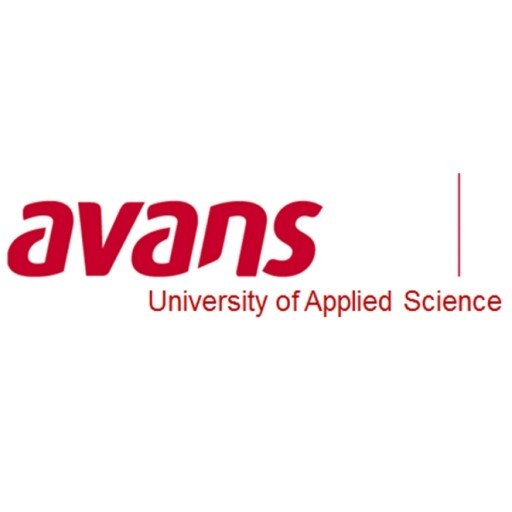Photos of university / #ihu_scitech
The MSc in Sustainable Development at the International Hellenic University is a comprehensive postgraduate program designed to equip students with the knowledge and skills necessary to address the pressing environmental, social, and economic challenges facing global communities today. This interdisciplinary course offers a unique blend of theoretical foundations and practical applications, preparing graduates to develop innovative solutions for sustainable growth across various sectors. The curriculum covers core topics such as environmental management, renewable energy, policy analysis, social equity, resource conservation, and sustainable urban development, ensuring students gain a broad understanding of the multifaceted nature of sustainability. The program emphasizes critical thinking, problem-solving, and project management skills, fostering a strong capacity for research and policy formulation. Students will have opportunities to engage in real-world projects, internships, and collaborations with industry partners, providing valuable hands-on experience. The faculty comprises experts from academia, industry, and government, offering diverse perspectives and mentorship. Graduates of this MSc programme are well-prepared for careers in international organizations, governmental agencies, NGOs, consultancy firms, and private sector companies focusing on sustainable practices. The program also aims to strengthen research capabilities and promote innovative approaches to sustainability challenges. Students can expect a dynamic learning environment that encourages international dialogue, cultural exchange, and community engagement. Overall, the MSc in Sustainable Development at the International Hellenic University is tailored to develop visionary leaders and professionals committed to fostering sustainable development at local, national, and global levels, contributing to a more sustainable and equitable future for all.
Elective Modules
The elective modules represent a rich variety of broad subject areas.
Students who choose to follow the Sustainable Strategies (at the corporate, society and state level) should select four electives from the list i according to their interests and their current and future career orientation. Their dissertation topic should also be related to Sustainable Strategies.
Students who choose to follow the Sustainable Tourism should select the corresponding four electives from the list ii. Their dissertation topic should also be related to Sustainable Tourism.
i. ELECTIVE COURSES FOR SUSTAINABLE STRATEGIES
* Concept Engineering and Prototyping
* Low Impact Manufacturing
* Industrial Ecology and Life Cycle Assessment
* Environmental Accounting and Reporting
* Sustainable Production and Consumption
* Environmental Impact Assessment
* Strategic Environmental Assessment
* Climate Change and Energy Strategies
* Elective course from other IHUs programs
* Consulting project (supplant 2 elective courses)
ii. ELECTIVE COURSES FOR SUSTAINABLE TOURISM
* Alternative Tourism
* Destination and Event Development
* Strategic Management in the Hospitality and Tourism
* Technological Innovation in Tourism and Hospitality
* Climate change adaptation of the Tourism Industry
* Tourist Consumer Behaviour
* Contemporary Issues in Global Tourism
* Entrepreneurship in Tourism and Hospitality
* Elective course from other IHUs programs
* Consulting project (supplant 2 elective courses)
The Consulting Project
During the second or third quarter, students participate in a consulting project relevant to the Stream they have joined. In groups, students study an actual environmental problem of a particular firm or organisation. Following analysis of the problem, the students prepare and present concrete and practical solution(s).
The Dissertation
The dissertation is an individual 10,000-word paper of original scientific (theoretical or applied) work, which upon completion is submitted for examination and approval by a three - member committee chaired by the student's supervisor.
Program requirements for the MSc in Sustainable Development at the International Hellenic University include a strong foundation in environmental sciences, economics, and social sciences. Applicants are expected to hold a bachelor’s degree from a recognized institution, preferably in disciplines such as environmental management, engineering, economics, or related fields. Proof of proficiency in English is required, such as TOEFL or IELTS scores, to demonstrate adequate language skills for graduate-level coursework. Prior research or professional experience in sustainability, environmental policy, or related areas is considered an advantage but is not mandatory. Candidates must submit completed application forms, academic transcripts, a CV outlining relevant experience, a statement of purpose explaining their motivation and goals in pursuing the program, and letters of recommendation from academic or professional referees. The program may include prerequisite coursework in core areas like environmental policies, sustainable development theories, and quantitative methods, which applicants may need to complete if their undergraduate studies did not cover these topics. Attendance at introductory seminars or interviews might be part of the selection process, depending on the applicant pool. The curriculum is designed to combine theoretical knowledge with practical skills, necessitating active participation in group projects, fieldwork, and case studies. Some modules require final exams, essays, or project reports to assess understanding and ability to apply knowledge in real-world sustainability challenges. The program emphasizes interdisciplinary approaches, critical thinking, and problem-solving, suitable for students aiming to work in environmental policy, consultancy, international organizations, or academia. No specific work experience is mandated for admission, but relevant internships or employment in related sectors may strengthen an application. Additionally, students must adhere to the university’s academic regulations and code of conduct during their studies.
The International Hellenic University offers diverse financing opportunities for students enrolled in the Sustainable Development program, aiming to facilitate access to quality education for all qualified candidates. The primary funding sources include government scholarships, which are available based on academic excellence, financial need, and other criteria set by Greek authorities. These scholarships often cover tuition fees partially or fully and may include stipends to support living expenses during the study period.
In addition to state-funded scholarships, the university provides several internal scholarship programs designed to reward outstanding academic achievement and promote research activities within the field of sustainable development. These internal awards are competitive and aim to motivate students to excel academically and contribute meaningfully to their field.
Furthermore, the International Hellenic University encourages participation in European Union-funded programs, such as Erasmus+, which offer mobility grants for students to study abroad for part of their degree. Erasmus+ grants typically cover travel, accommodation, and living expenses, thereby reducing the financial burden on students and broadening their academic and cultural experiences.
Private and corporate sponsorships are also an important aspect of the financing landscape for students in Sustainable Development. Various organizations cooperate with the university to provide scholarships, internships, and project funding to students demonstrating commitment and innovation in sustainability initiatives.
Students are also advised to explore external funding options available through international foundations, NGOs, and environmental agencies supporting sustainable development education. These external grants often target specific demographics or research areas and require application through standardized procedures.
The university's financial aid office provides guidance and counseling to help prospective and current students navigate the application processes for various funding sources. They also organize information sessions and workshops to inform students about available opportunities, application criteria, and deadlines.
Overall, the financing studies at the International Hellenic University are designed to promote inclusivity and support students financially through a combination of governmental, university-based, European, and private funding mechanisms. This comprehensive approach ensures talented students can pursue their academic goals in Sustainable Development without undue financial stress, fostering a new generation of professionals equipped to address global sustainability challenges.
The International Hellenic University offers a comprehensive program in Sustainable Development designed to equip students with the knowledge and skills necessary to address pressing environmental, social, and economic challenges facing the global community. The program emphasizes a multidisciplinary approach, integrating principles from environmental science, economics, social sciences, and policy-making to foster sustainable practices across various sectors. Students engage in coursework that covers topics such as renewable energy, resource management, environmental policy, and sustainable urban development. The curriculum is tailored to prepare graduates for roles in governmental agencies, NGOs, private sector companies, and international organizations dedicated to promoting sustainability and responsible development. The program also encourages practical experience through internships, research projects, and collaborations with industry partners, enabling students to apply theoretical knowledge to real-world issues. Faculty members are experts in their fields, providing mentorship and guidance to support students' academic and professional growth. Additionally, the university's strategic location offers opportunities for fieldwork and case studies within Greece and beyond, enriching the learning experience. Graduates of the program are expected to contribute to the development of innovative solutions that balance ecological preservation with economic growth, ensuring the well-being of future generations. The university continuously updates its curriculum to align with international standards and emerging trends in sustainable development, reflecting its commitment to providing a relevant and forward-looking education. Overall, the program aims to produce socially responsible professionals capable of leading sustainability initiatives locally and globally, fostering a more equitable and environmentally conscious society.










